It’s Not Where You’ve Been, But Where You’re Going: Tana Amen & The Women from Jobs Partnership
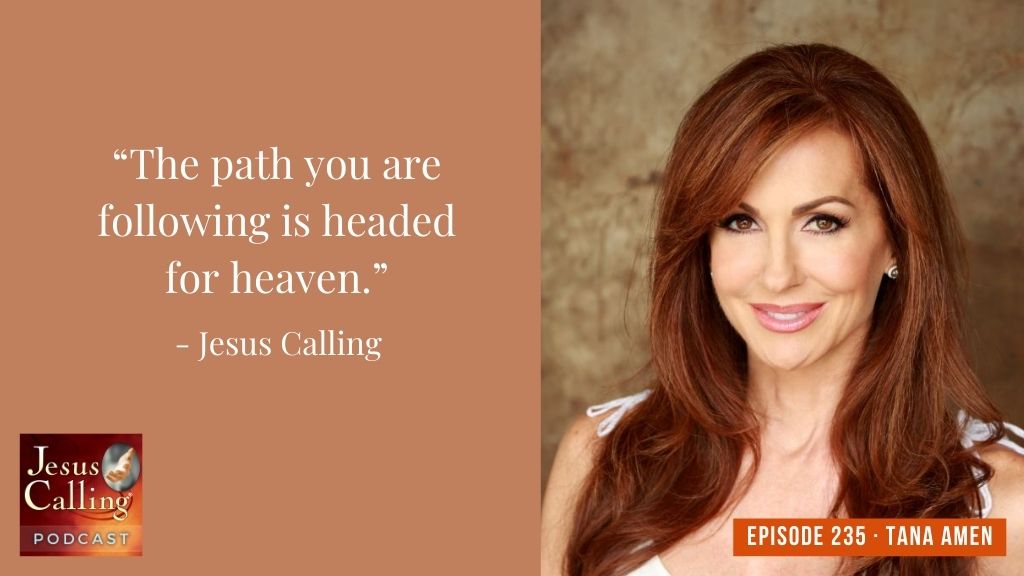
Tana Amen: I guess God picked me because He knew I could handle it. He gave me the strength. And even when I didn’t know it, God knew it. I want to be that person to treat someone’s family members with dignity and respect at the worst time of their life, the way that I would want someone else to treat my family. Or me.
It’s Not Where You’ve Been, But Where You’re Going: Tana Amen & The Women from Jobs Partnership – Episode #235
Narrator: Welcome to the Jesus Calling Podcast. Throughout the course of our lives, there are bound to be times that we look back and see—or maybe even wish—that we might have made better choices. Our guests this week are well aware of the consequences our choices have—but also recognize that our struggles are part of the bigger picture—the evolution of the person God is shaping and growing into the very best person to be used by Him. We welcome author and RN Tana Amen to the show along with three women from the Jobs Partnership organization in Peoria, Illinois—Cheryl Parks, Mila Brown, and Corday Rice.
First up, Tana Amen is a nurse, author, and vice president of Amen Clinics. Being on the frontlines of people’s worst moments meant that Tana eventually had to face a deep well of her own past trauma, including a family history plagued by drug addiction, murder, molestation, eating disorders, abandonment, and divorce. Tana spent years shoving her emotions and her pain deep down, and it wasn’t until she met her future husband, Dr. Daniel Amen, that she began to realize she was strong—not in spite of the things she’d been through—but because of them. After she stopped running, Tana found true freedom when she realized God was more concerned with her future than with her past, and as she pursued total healing, she opened herself up to God, and discovered that reclaiming your wellness in the name of the Holy Spirit is one of the most empowering things you can do.
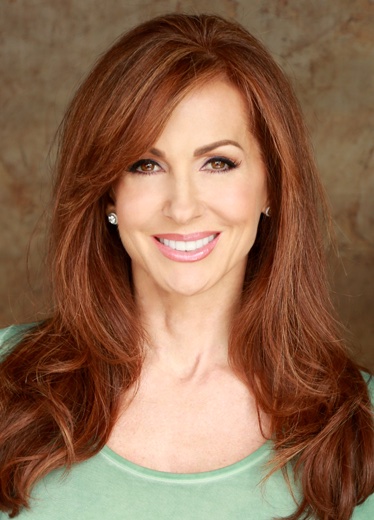
Tana: I’m Tana Amen, vice president of Amen Clinics. I’m a nurse and author and a speaker. And most of all, I’m a mother and a wife and a cancer survivor. It’s hard to be vulnerable. It’s hard to share your story, and it’s a tricky thing to do. But I felt called to do it, if you will.
My family was very chaotic. I didn’t grow up in the perfect Leave It to Beaver Christian home. It wasn’t like that. It was more like Jerry Springer material. And so I’d become very disconnected from them as a way to save myself, as a survival technique. I disconnected from most of my family. Other than my mother, I pretty much pulled away from everyone. And it was really hard to even think about reconnecting with them because of the pain that goes along with engaging in that family chaos, that family drama.
My mother was a sixteen-year-old runaway. She never finished high school. There was a lot of mental illness in my family, a lot of addiction. We were very poor when I was growing up and my mother didn’t do drugs. She had a really hard time providing. So when my father abandoned us, I started doing drugs and that had a huge impact on how I was raised. He became, later, a Baptist minister. And even though he was a Baptist minister, he never really took responsibility for his family, meaning me, my mom. He remarried. He had children again. But he never really took responsibility for me. And he never really took much of an interest in me. And that affected my spiritual walk for a long time. That was really hard for me because I sort of compared my dad to God for a long time. So that was one thing that was really hard for me.
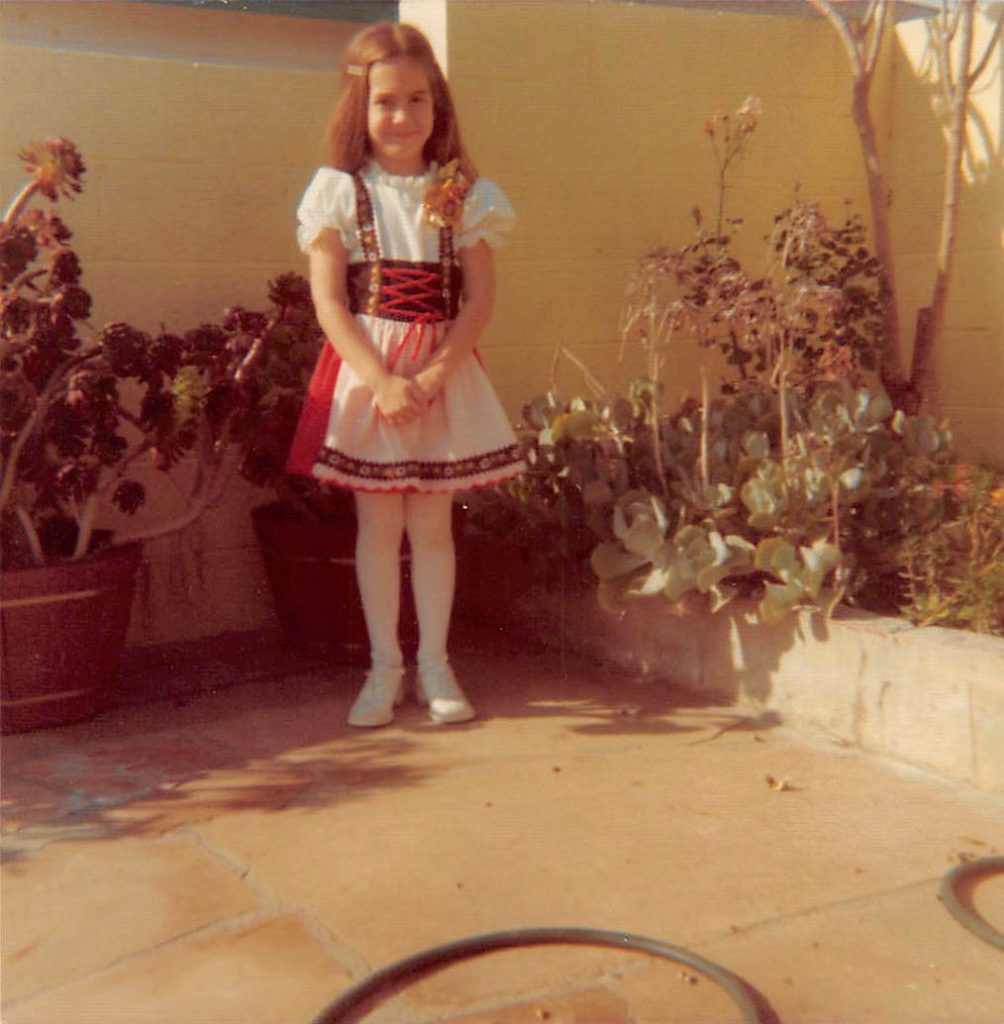
But one of my earliest memories was my uncle, who was a heroin addict—my other uncle, who was not a heroin addict, was murdered in a drug deal gone wrong. And it was because he was trying to help my uncle who was an addict. And that really left a blemish on our family. That was hard. It was hard for us. And I just remember my mother and my grandmother screaming and falling to the floor and that. That was not uncommon, police being called I mean—murder wasn’t common, fortunately, but police being called and drama and chaos [was]. And when I look back at my childhood, that’s what I remember.
And then I was molested by my stepdad when I was twelve. And at fifteen, I was actually assaulted by a stranger, an absolute stranger, when I was walking to school. And after that, I developed an eating disorder. I think I just felt so out of control of my life. I just had nowhere to turn, and drugs weren’t an option for me. So that really was a difficult thing for me to deal with growing up and not knowing who to ask for help and why it was happening.
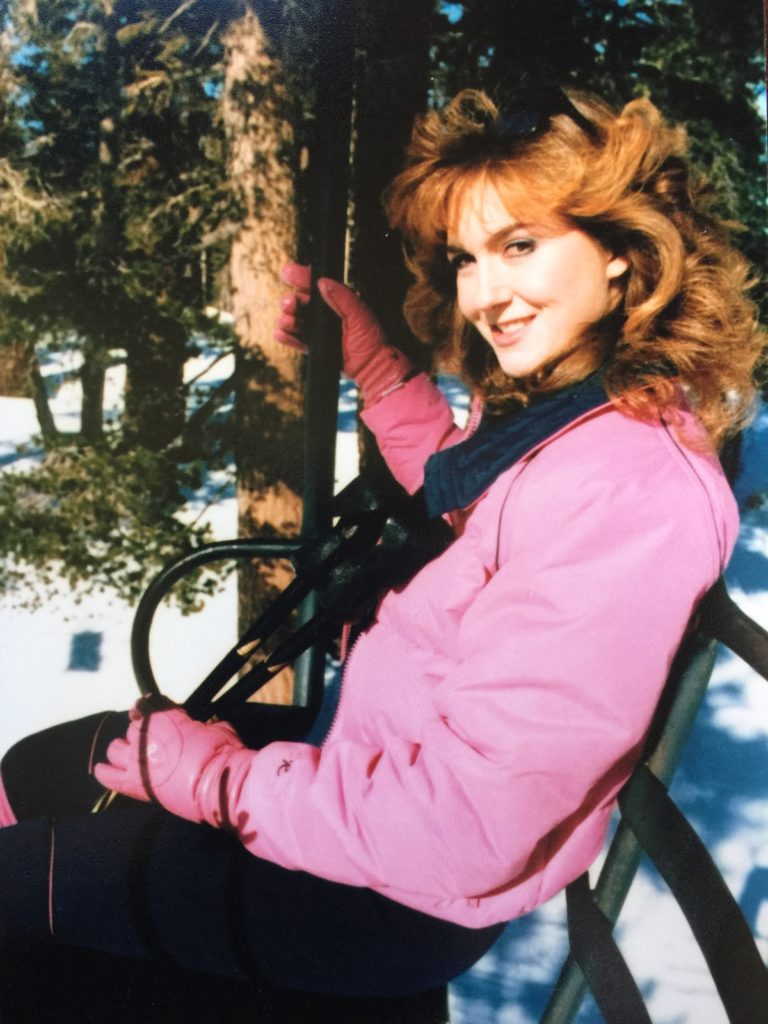
And then at twenty-three, when I was diagnosed with thyroid cancer, I felt like everything just sort of snapped. The thyroid cancer metastasized. It kept coming back. I had to quit my job, drop out of school. And there was a time when I actually finally thought I’d had the world by the tail and it all just came to a screeching halt. And that was the final straw. And I fell into this very deep depression, and I wish I could just die. And fortunately, my mother had instilled this very deep level of guilt and always told me that if something happened to me, her life would be over. So I never really thought about killing myself, but I really kept thinking, There is no reason for me to be on the planet. And I just wished that God would let a truck hit me or I kept praying that God would just let something happen because I was just wasting oxygen on the planet.
So in my youth, there was so much craziness in my family. And one of the things that happened was my uncle who was a heroin addict who really scared me. His behavior was really unpredictable. It made my home unpredictable. And that same uncle became this amazing mentor in my life years later when he got cleaned up, and he started actually teaching motivational seminars of all things. And he asked me, “How much responsibility are you willing to take for your life and where it’s at?” Because it was a mess.
And I said, “I can’t take responsibility for getting cancer.” I mean, that’s what threw me so far off track and I went way off track. “I can’t take responsibility for depression.” I mean, that wasn’t my idea of a good time, getting cancer and becoming so depressed. I wanted to die.
And he looked at me and he said, “I didn’t ask you how much blame you’re willing to take. I asked you how much responsibility you’re willing to take, which means the ability to respond.” He said, “If you’re willing to take fifty percent responsibility, then you have fifty percent opportunity to change the outcome.”
It was a light-switch moment, because I realized in that moment that if I only took fifty percent responsibility, it meant someone or something else had the other fifty percent. It meant I wasn’t really in control of it. It wasn’t me just relying on God. It was like me giving up control and being a victim. And it was this light-switch moment, and it changed the trajectory of my life at that point.
“If I only took fifty percent responsibility, it meant someone or something else had the other fifty percent. It meant I wasn’t really in control. It wasn’t me just relying on God. It was like me giving up control and being a victim.” – Tana Amen
Responsibility Empowers Change
I want people to understand that responsibility isn’t blame, but it gives you more power over your own life. And one of my favorite Bible verses about this is 1 Corinthians 6:9–11. And that just reminds me if you really just turn to God, if you surrender and if you take responsibility for your life—we have a lot of addiction in my family, their world. There’s a lot of mental illness. And even after I became a nurse, I didn’t realize how judgmental I was towards addiction and towards mental illness. And so I actually chose to work in a trauma unit where people are sedated and intubated. I chose blood and guts over any type of psychological issues with patients. And I shoved it all down and didn’t really want to deal with it. And then I was faced a couple of times with God putting the challenge of helping some of my family members who I hadn’t talked to in years.
So what I learned is that when I put myself out there and helped when I didn’t want to, I just had no idea how much the help was for them, but the healing was for me. God had these big healing lessons in store for me, and I couldn’t see it. I couldn’t know it until I actually did it, until I actually trusted Him enough to do the uncomfortable thing. So the help was for them and the healing was for me.
“What I learned is that when I put myself out there and helped when I didn’t want to, I just had no idea how much the help was for them, but the healing was for me.” – Tana Amen
And I started to realize that I’m reluctant when it comes to healing, but God knows so much more than we do. There’s a reason He puts these things in front of us. I probably will argue again in the future, but I’m going to lose. I already know that because I’ve already said that prayer. It’s like, “God, please humble my heart. Let me know when this is from You.” I think it’s important to draw boundaries, but also understand when God’s calling you to do something.
“I think it’s important to draw boundaries, but also understand when God’s calling you to do something.” – Tana Amen
My favorite Bible hero is King David. I have a friend who’s a mentor and she sort of drug me to church at one of the hardest times of my life, in my twenties. And I had been depressed and I was sick and there was so much going on. And I thought, There’s a God who doesn’t love me, so why should I love Him? And that is if it even is a God.
But she took me to church and I started to hear some Bible stories. And when I heard about King David, I was like, Wait, if he could do it, I could do it. If God forgives him and loves him, you know, this is a man who was so faithful and yet went so far off track. He was kind of a disaster at one point. And yet God not only forgave him, but he blessed it and said he was a man created after His own heart. And once I realized this, I knew there was hope for me. And I just think God cares less about where you’ve been than where you’re going. And I’m so grateful for that grace and that mercy. And once I realized this, I just knew there was hope.
“God cares less about where you’ve been than where you’re going. And I’m so grateful for that grace and that mercy.” – Tana Amen
Through that process, I learned that responsibility is my favorite word. It just became my favorite word because responsibility means the ability to respond—it doesn’t mean taking blame. And it’s just an amazing thing.
Tana Finds Acceptance From Her Best Friend: Her Future Husband
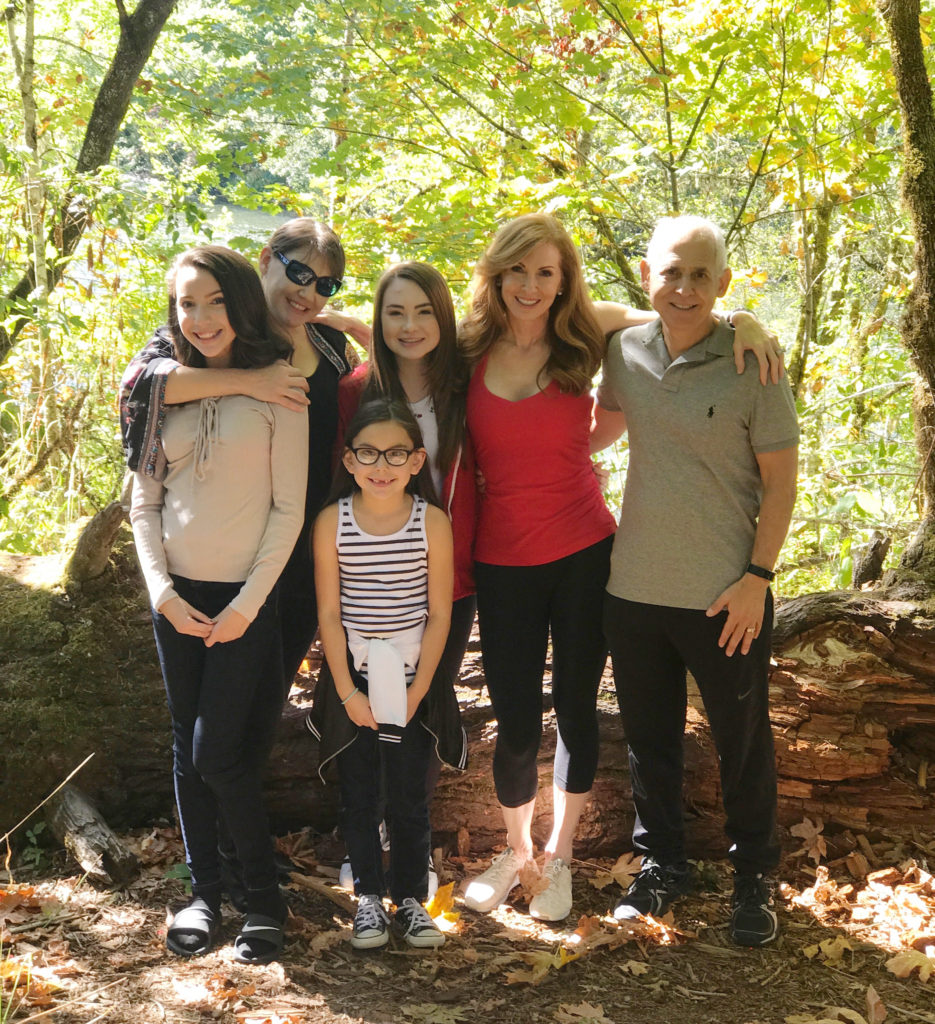
I almost canceled my first date with my husband, Dr. Daniel Amen, when I found out he was a psychiatrist. I wasn’t really interested in being psychoanalyzed. I had been through so much in my youth, and then I went through a painful divorce and an ugly custody battle. And I met him right about that time. And I’m like, You know, I’ve got so much baggage, I’m just going to save him the energy. So I kept pulling away from him, and he wouldn’t leave me alone. He just kept telling me, “Why don’t you let me decide,” which I thought at first was actually manipulative. I thought Nobody’s this nice. He kept consistently being kind, and I kept thinking, There’s no one this nice. This isn’t gonna work.
Even though I had renewed my faith before my first marriage, I started struggling again because after my divorce, it was just such an ugly process. I didn’t blame God, but I thought, If this can happen, I don’t know if it’s God, I don’t know if it’s me, but this isn’t working. And so I just figured that it hadn’t really helped, and I was too messed up. I’m like, You know what? Walking with God didn’t really help my life, even though it really did at the time but I wasn’t able to see it. So I’m just going to pull away and do it my way.
I built this facade. I built this wall. I wouldn’t let anybody in. And the eating disorder actually returned right about that time. And so I couldn’t let anyone see that I was going through this custody battle. I was a single mom. I was under so much stress, but I had to have it together. So as opposed to when I was younger and I fell apart, I financially was very secure. I looked like I had it all together. I owned my own home. I had a good job. And I would paint my face every day and do my hair. And everyone thought that I had it completely together. But on the inside, I was a complete mess.
So I had this facade and no one could see through it. Not even Daniel really saw through it. But he is so different, and I don’t even know how to explain that. He’s just got this very kind soul and eventually he just broke down my walls. And I kept warning him that he’d be better off not getting involved with me, and he was just so persistent. And when I finally told him, I just broke apart, and I ended up telling everything, all the worst things about me, and I kept thinking, Why am I telling this man of all people the worst things about me? And he kept saying how amazing he thought it was, not in spite of what I’ve been through, but because of what I’ve been through. That was the first time I ever heard that.
Then he introduced me to people in the field and techniques that ultimately helped me process past trauma. And I realized I had never processed anything from my past. So I was willing to finally just face my past and all the shame that I felt. And I started doing EMDR and some other techniques that really just changed my life again and just brought me so close to my daughter and changed what kind of a mother I was and what kind of a wife I was. And I ended up marrying my best friend.
New Practices for a New Life
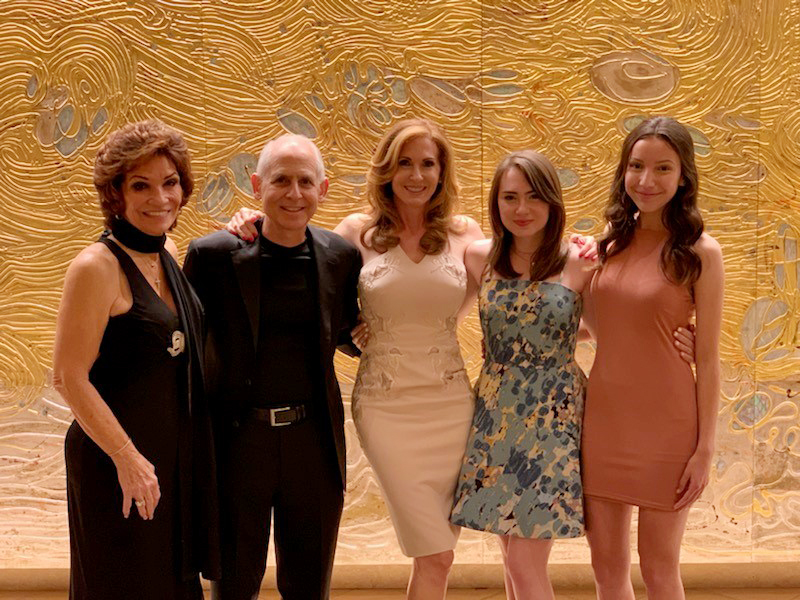
Spending quiet time with God is very important. I notice that when I get too busy, my life feels chaotic and hectic. When I take the time to pray and meditate, I feel like I can handle what’s going on in my life. It’s just that simple.
I am familiar with Jesus Calling. I love the daily devotional. I agree with the author, Sarah Young, that no matter what your life looks like today, God definitely has a plan. I am an example of that. I feel like my life is so much better today not in spite of my struggles, but because of them. You just have no idea how powerful that can be going forward, what God has in store for you, if you will just trust Him. I’d like to read one passage from Jesus Always. It’s March 13th.
Do not dwell on the past, beloved. You can learn from the past, but don’t let it become your focus. You cannot undo things that have already occurred, no matter how much you may yearn to do so. Instead of wishing for the impossible, come to Me and pour out your heart. Remember that I am your Refuge; trust in Me at all times.
Reinforce your confidence in Me by saying frequently: “I trust You, Jesus.” Uttering those four words can brighten your day immediately. Dark clouds of worry are blown away by simple, childlike trust.
I am doing a new thing! Be on the lookout for all that I am accomplishing in your life. Ask Me to open the eyes of your mind and heart so you can see the many opportunities I’ve placed along your path. Don’t fall into such a routine that you see only the same old things—and miss the newness. Remember that I can make a way where there appears to be no way. With Me all things are possible!
“I feel like my life is so much better today not in spite of my struggles, but because of them.” – Tana Amen
I just think God wants us to use our voices, but He wants us to use them to learn to use them in a positive way. Reclaiming our health and wellness is one of the most empowering things we can do. And I did not grow up healthy. I was a very sick child. So I went on a mission to learn the importance of nutrition, lifestyle, exercise, and what is the importance of our physical health to our mental health.
If you are trying to deepen your spiritual growth, have a positive impact on your life, and are spending your time with people in a church community—there are studies that actually show that people live longer when they are involved in Bible studies and church groups and small groups—and the church in general—because they are hanging out with healthier people.
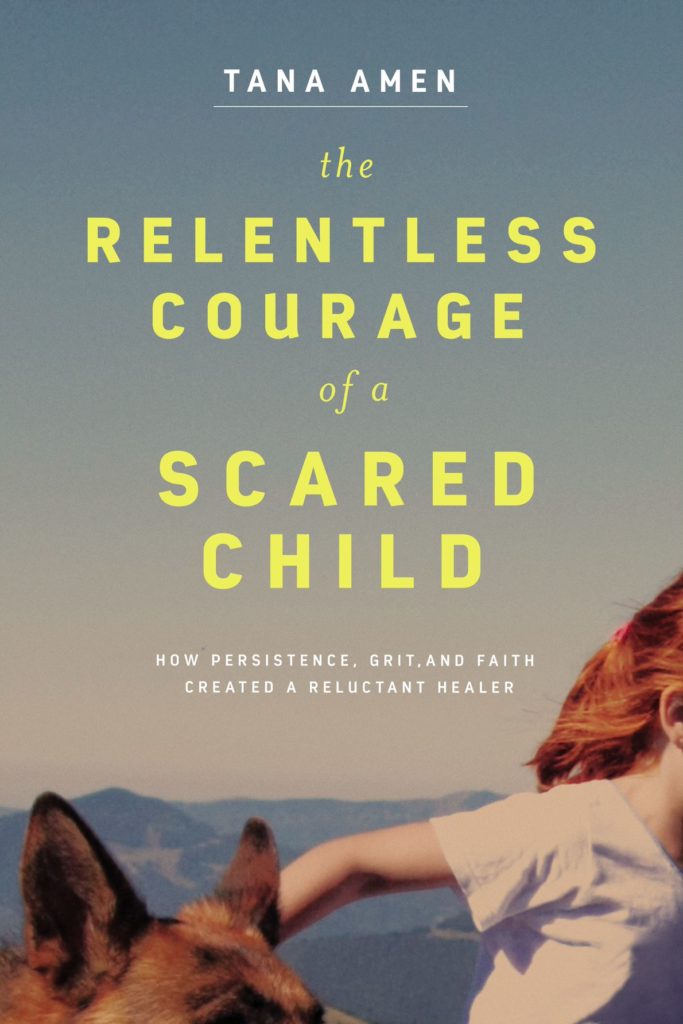
Then there’s your psychology. It’s what is your thinking like, what is your mindset? Your thoughts lie. They lie a lot. You need to learn to control your thinking. The Bible talks so much about that, and it’s so important. Then there’s your social circle. Who are you hanging out with? Because people matter. People are contagious.
So that same idea also connects to your spiritual circle. Your spiritual circle is what gives you meaning and purpose. Why is the world a better place because you breathe? Now, obviously, for a Christian, that means your connection to God. Meditation is when I listen to God and I listen for what He’s saying to me. And prayer is when I’m talking to God, and I tell Him my joy, my frustration, everything that there is, and I get it out of my head and it just really stills my soul and it’s so helpful.
“Meditation is when I listen to God and I listen for what He’s saying to me. And prayer is when I’m talking to God and I tell Him my joy, my frustration, everything that there is, and I get it out of my head and it just really stills my soul and it’s so helpful.” – Tana Amen
Just ask yourself what you’re grateful for, but then turn around and say, “Today is going to be a great day.” And I know that sounds so simplistic, but the truth is your brain does not have a sense of humor, it just does what you tell it to do. So if you start the day with, “Today is going to be a great day,” your brain has no choice but to start to look for why the day is a great day. I find that amazing. Trusting in God, how He can, blow away the dark clouds of worry by simple, childlike trust. And I just think that’s incredible. God cares less about where you’ve been, what’s going on, than where we are going.
Narrator: To learn more about Tana and her work, please visit tanaamen.com. And you can read more about Tana’s story in her new memoir, The Relentless Courage of a Scared Child.
Stay tuned to the stories of the Women from the Jobs Partnership organization after this brief message.
2020 has brought a lot of challenges to many of our lives—but none more than our country’s first responders. The team at Jesus Calling has chosen 100 Jesus Calling devotions that have been specially selected for those heroes in our midst. There are hardcover editions of these 100 devotions for Medical Professionals, Firefighters, Law Enforcement, and the Armed Forces. Find these Jesus Calling for First Responders editions exclusively at ChristianBook.com.
Narrator: Our next guests are part of the Jobs Partnership Program in Peoria, Illinois, an organization that helps people who are incarcerated return back to society in healthy and productive ways. We’re joined by Cheryl Parks, the executive director of the program, and two of its graduates, Mila Brown and Corday Rice, who share their own stories of how their lives were transformed by the program, by those who believed in them and showed them love, and the faith that propelled them to make a fresh start.
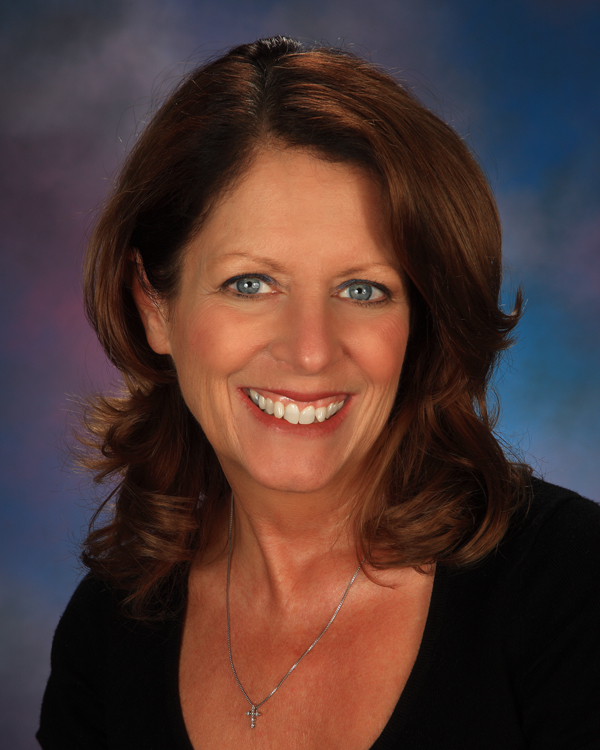
Cheryl Parks: My name is Cheryl Parks and I’m the executive director of Jobs Partnership. I’m also a pastor’s wife, a mother of three, and a grandmother of three.
Jobs Partnership here in Peoria is a program that works with anyone that’s unemployed and underemployed, and those that are entering back into society after being incarcerated. And we have an extended program in the Peoria area. It’s called Jobs Partnership Reentry. And we do quite a bit in the Peoria County Jail.
We have classes on fatherhood, on healthy aging, on your credit, on financial counseling. We have addiction classes. We have classes on trauma and depression and anxiety. We have communication classes. And we bring in subject matter experts from all walks of life on these different programs that we offer.
Finding a Place to Belong: Mila’s Story
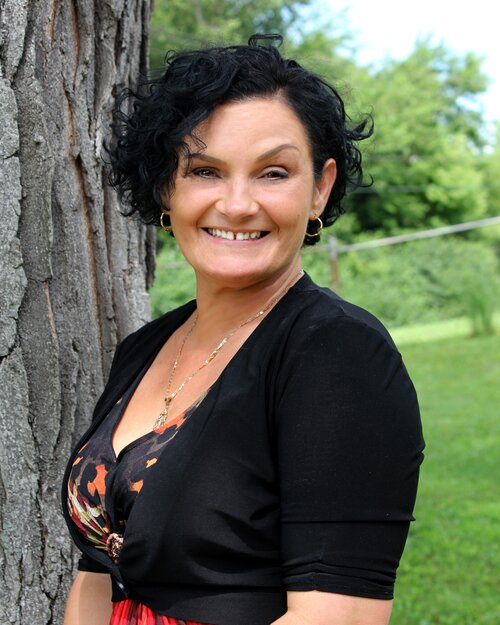
Mila: Hello, I’m Mila Brown. I am an advocate for the Jobs Partnership program. I’m a mom of three, a grandmother of three. I am a recovering addict.
I was incarcerated in Logan Correctional Center, and a friend of mine in there kept telling me about this program, this class called Jobs Partnership. And at the time I was training dogs, so I was so busy and I kept using the excuse that I didn’t have time. And then she told me, “Well, you can take your dog with you.” So I had no excuse anymore. So I signed up for the class and it was, I’m telling you, the blessing of all blessings.
At the time, I had no idea where I was going to go when I was released. And after the first class, I knew exactly I was coming to Peoria and I was going to the Jobs Partnership house that they have for the women. I still had a year left before I was released, and I really had no clue that I was going to get in. But I claimed it, and here I am. They open so many doors and so many opportunities there. They open their arms and their hearts more than anything. And now I will just do anything for them. They have me for life. I don’t care where I am in the world.
And I remember Ms. Cheryl came down and helped teach the class one time, and I loved her from day one. She’s just, you know, she keeps it all the way real with people. She doesn’t sugarcoat anything. If you’re right, you’re right. And if you’re wrong, you’re wrong. And she always gives people a chance, even if you just keep messing up and keep messing up. Cheryl’s the type of person who’s always got your back.
It’s funny because when I first came home and Miss Cheryl first asked me to speak at one of our functions, one of our dinners for our many volunteers, I hated speaking in front of people because I got so nervous and I get so emotional, and I hate to cry in front of people. But it’s funny, I think that’s what I really love doing now, because I feel like if my story can help anybody, one person, I’ve done what I needed to do.
“If my story can help anybody, one person, I’ve done what I needed to do.” – Mila Brown
The Courage to Change: Corday’s Story
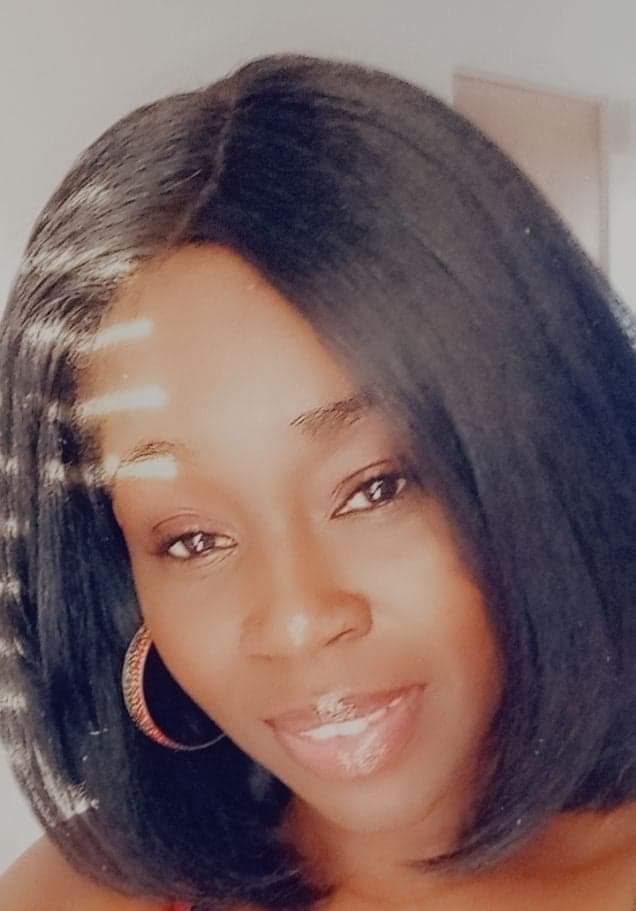
Corday: Hi, I am Corday Rice, and I am thirty years old, I am a graduate of the Jobs Partnership Program. I am the youngest sibling of four.
So in 2013, I lost both of my parents. And what I mean by parents, my stepmother had been active in my life since I was born. I would stay in California for school time. And then when it came time for vacation, I would go to Las Vegas with my stepmom and my father.
So both of my moms passed away, and life as I knew it in my mind was over. I buried my birth mom in January of 2013, and I turned around and find my stepmother deceased in the house in July of 2013. So my life went into a spiral. I started using drugs, and I started using it more than I usually do. So I was dating this guy, you know, being a bad girl, trying to hang with the bad guys. I was doing things that I wasn’t supposed to do. So I got pulled over on the highway March 31st of 2015 and I went to prison. I went to jail.
So me going in, not knowing anybody from out here, just losing my parents, still trying to recover from being on drugs, it was scary. So I went in with a determined mind, I’m going to get everything that I need out of this place, whether they give it to me or I get it myself. So among a lot of classes that they gave, Jobs Partnership stuck out the most. So I ended up doing a class and doing the homework, which was Bible based, and I graduated from the class. So the whole time that I was incarcerated, in my mind, I’m like, God, where am I going to go? I know no one. I have nobody. I have no family, no friends. No one has reached out to me for the four and a half years that I have been incarcerated. What am I going to do?
“The whole time that I was incarcerated, in my mind, I’m like, God, where am I going to go? I know no one. I have nobody. I have no family, no friends. No one has reached out to me for the four and a half years that I have been incarcerated. What am I going to do?” – Corday Rice
So I wrote a letter to Jobs Partnership, explaining to them my story and how I wanted to change and how I felt that I would be a perfect candidate to be a part of their program. I’m anxious because my time is winding down. I’m getting ready to get released. So I hear something back. They said, “Well, we’re going to do the phone interview and we’re going to do this and that over the phone.” So me leaving prison, I was met there by Mila and another young lady who came and picked me up from prison. So I’m bawling, crying. I was very excited when I got my acceptance letter to the Jobs Partnership program. So it was like a weight off of me. Lord, I have somewhere to stay. I’m not just going to be put in place and not know anybody.
I knew deep down inside that changing people, places, and venues was the best thing that I could do, because had I not done it and went back to Las Vegas or went back to California, I would have fallen into the same trap, started using again and would have been right back at square one. And all the work that I have put in for myself and all the work that I have done over the course of four and a half years would have been down the drain because I wanted to go back to the familiar. The familiar is always safe. People say that change is scary, but change is good.
“People say that change is scary, but change is good.” – Corday Rice
Finding Friendship & Support After Incarceration
Mila: Corday and I, we grew and we made a big change in being incarcerated together. She had no choice but to come here with me. I knew that she would be a perfect candidate for this program and I knew that this program would be perfect for her. And I wanted so much for her. And I knew what they did for me. So I knew she deserved just as much. So she had no choice. She was coming here whether she liked it or not.
Corday: That’s so tender.
Mila: I know! You’ve got me back here crying—thanks!
Corday is truly my friend. And I haven’t been able to say that about a lot of women in my life. But she’s been my friend for years now. And she’s one that, you know, when we were incarcerated, I was a tough nut to crack, I’ll say. And she cracked me, like, she used to know when I was holding stuff in, and I just wouldn’t let anything out. And she would literally sit on me and make me write it out and make me cry, you know, instead of holding all that mess in. And so seeing her blossom how she has, it makes me so happy and it makes me feel like we are where we’re supposed to be. You know, God gave us a whole new family here.
Corday: When I look back over my life and I see the things that I have done that were horrible to people, I thought that I could never be loved again. I thought that I could never be the type of person that I am today. That’s God. Only God can do that, because when you rely on just the world’s perspective, people will judge you. They will talk about you, criticize you. “You haven’t changed.” And, “She’s going to be right back where she was.” “I’ll just give it time.” You have those naysayers that say things like that to you to try to break you down.
So when God sent these women into my life, it broke me down. But it was good to have women just look at me and just say that, “I love you.” And they didn’t even know me. So I knew right then and there that that could only be the love of God that’s working through them in the Jobs Partnership program.
“It was good to have women just look at me and just say that, “I love you.” And they didn’t even know me. So I knew right then and there that that could only be the love of God that’s working through them in the Jobs Partnership program.” – Corday Rice
It’s a blessing when we have women and people like the Jobs Partnership program that come in and tell you that, “You are somebody,” and then you reflect back on scripture and where God says, “You are somebody, you are loved, you are a child of the most high,” you have to stand firm on those scriptures, and you have to start believing in yourself and stop believing the lies of the enemy and allow people to love you and embrace you, because there are people out there that really do care.
Cheryl: I believe a lot of women want things differently. I truly, truly believe that. But I believe that it’s the fear of change and how to change, not knowing. And that’s where I think our big push with Jobs Partnership comes in, is teaching the steps. But you can’t just teach it. You’ve got to be there to walk through with them until they can walk on their own.
Corday: After graduating from the Jobs Partnership Program, we received a Jesus Calling, and mine was a pretty soft pink. It was just so inviting, you know, just so nice and just a pretty soft pink. So I opened it and I started reading it and I reflected back on the title of the book, Jesus Calling, Jesus Calling, Jesus Calling. So Jesus is calling me to read this book, I’m going to read it. And just the everyday daily devotion, it seems like it matched for every single day, it hit right on the nose. I was just so amazed. And I don’t just have to read it, you know, October, November, December. I can read it all year round and it matches every single time. That’s how I got connected with the Jesus Calling book.
Cheryl: I have been reading Jesus Calling, I think, since it came out, to be quite honest. Every day I read it along with my Bible study. And it is amazing how it hits on what is happening or what’s about to happen in my day. It just gives me a lot of peace and a lot of hope and a lot of, Okay, you got this. You can do this.
Mila: I got mine when I graduated from the program. And mine is also pink, Corday. And you know what? Just as she said, it seems like it’s always right on spot. It always knows. And I know it’s crazy because, well, it’s for everybody. It doesn’t matter. You might be going through something different. But when you read it in your mind, it’s for you.
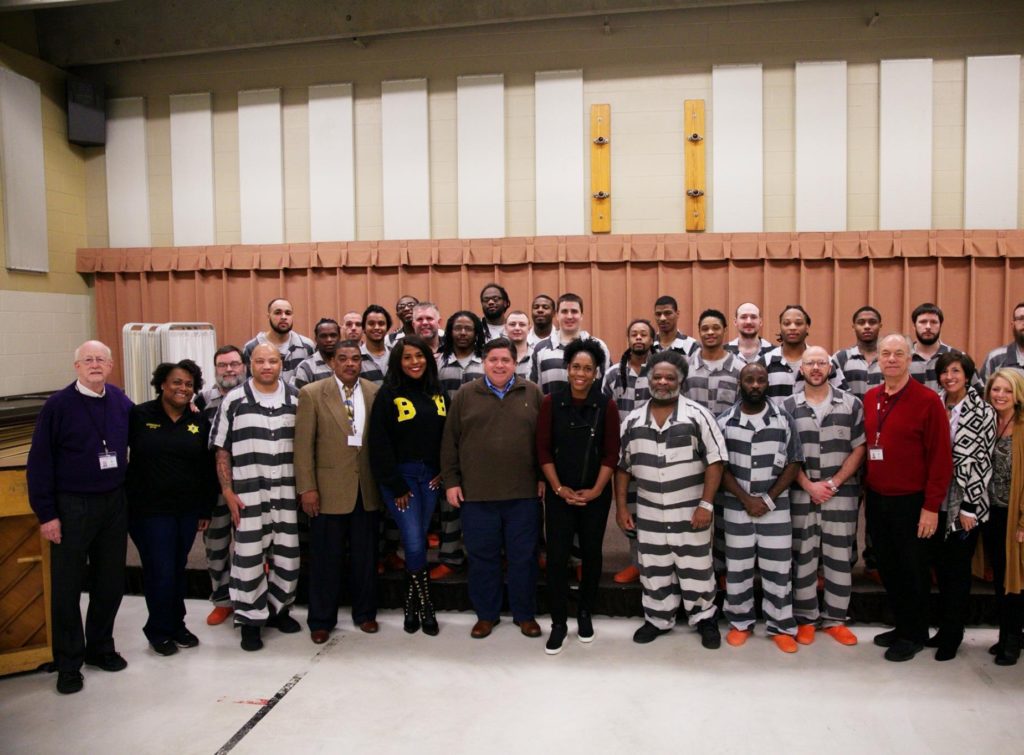
I truly believe that everything happens for a reason, honestly. Prison was the best thing that ever happened to me. I feel like God knew that I didn’t have the strength to get out of the situation that I was in, so He forced my hand. He was like, “Okay, Mila, you’re getting out of this situation one way or the other. And if this is what I have to do to save your life, this is what I’m going to do. And then I’m going to place somebody in your life that is going to help you,” which was Jobs Partnership.
I feel like for anybody that hears my story or if they get anything from it, I want them to get that there is hope. There’s a whole other life that you can live. Like I said, I was in a very dark place. I was a very insecure woman, lost. I had no hope for the future. I never, ever would have thought that I’d be living the life I’m living now. And God turned it around. And He showed me and He proved to me that anything can happen. So I would say all you have to do is have faith and surround yourself with people that believe in you and that will give you the strength and the support to move on with your life and make a better life for you and your family.
“I feel like God knew that I didn’t have the strength to get out of the situation that I was in, so He forced my hand.” – Mila Brown
Narrator: To learn more about the work that happens at Jobs Partnership, visit jobspartnership peoria.org.
If you’d like to hear more stories about putting our past behind us and finding the courage to change, check out our interview with Rebecca Bender.
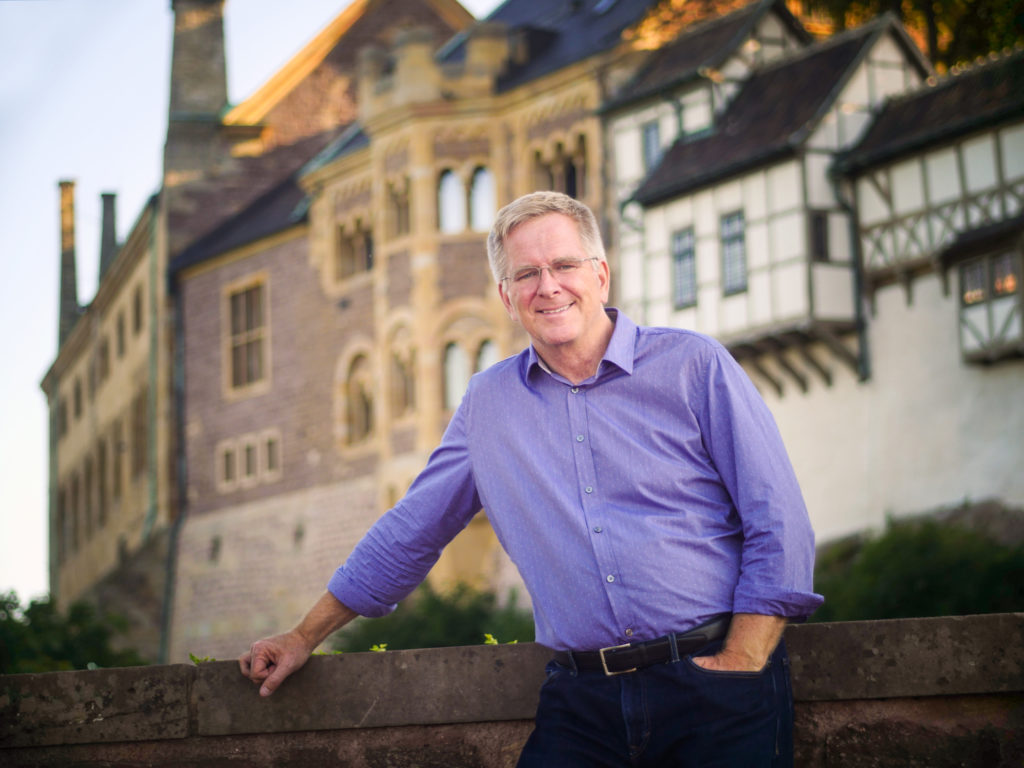
Narrator: Next time on the Jesus Calling Podcast, we speak with travel guru Rick Steves. Rick has made his life and career about traveling—and he empowers Americans to take overseas trips that are fun, affordable, and culturally broadening by helping them with guidebooks, his popular public television show, a radio show, and a syndicated travel column. Traveling nearly everywhere on the globe and meeting all kinds of people informed how Rick interpreted Jesus’ number one command: Love your neighbor.
Rick: If you take the things we learn in the Bible and the things we learn at church and the things we embrace, and if you take it on the road with you, you realize, Yeah, we’re all in this together. We’re all brothers and sisters in Christ. I mean, if Jesus says, “Take care of the poor,” if the golden rule is do unto others as you’d have others do unto you, or love your neighbor—all these beautiful ideals—and we travel and we see that need out there, it makes it tough to come home and ignore it.
